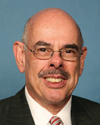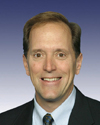Less than 24 hours after Republicans won control of the House, soon-to-be-speaker John Boehner denounced the new health care law, saying it would “kill jobs in America, ruin the best health care system in the world, and bankrupt our country” — and renewed his vow to try to repeal it. Kaiser Health News asked people around the country to answer the following question: “If you ended up in an elevator with Rep. Boehner, what single thing would you urge him to do about health care in this country?”
Click on a name to see the response.
Pedro Alfonso | Georges Benjamin | Linda Bettinazzi | Rep. Dave Camp, R-Mich. | Jamie Court | Rose Ann DeMoro | James Dickson | Tekisha Everette | Antonio Falcon | Judy Feder | Louis Goodman | George Hager | Christie Herrera | G. William Hoagland | Julius W. Hobson Jr. | Thomas Johnson | R. Bruce Josten | Michael Leavitt | Elizabeth McGlynn | Alan Murray | Len Nichols | Nina Owcharenko | Ron Pollack | Dr. Elena Rios | Ethan Rome | Sara Rosenbaum | Kim Ross | John Rother | Charles Scott | Donna Shalala | Dr. Bruce Siegel | Henry Stern | Janet Trautwein | Dr. Grace-Marie Turner | Rep. Henry Waxman, D-Calif. | J.P. Wieske
 Rose Ann DeMoro
Rose Ann DeMoro
Executive director, California Nurses Association/National Nurses Organizing Committee.
If you’re so committed to states’ “innovation,” enable them to do real health care reform by allowing state single-payer. Or, feel free to exit between floors.
 Henry Stern
Henry Stern
Insurance broker near Dayton, Ohio, who writes for the popular InsureBlog.
Mr. Speaker, I would urge you to stop letting the well-meaning — but clueless — define the message: health care is not health insurance. Ignorant politicians justify the (evil) individual mandate by comparing health insurance to car insurance but neglect to mention that if your car insurance covered oil changes and tune-ups, no one could afford it. They also forget that someone with a DUI pays a lot more than someone with nary a parking ticket, but support community rating and guaranteed issue. As a fellow Buckeye, my question for you, sir, is this: Did you really mean what you said about rolling back the toxic Democrat agenda, do you get what the Tea Party movement is really about, and if so, what will be your very first agenda item to defund and declaw ObamaCare?
 Ethan Rome
Ethan Rome
Executive director, Health Care for America Now.
I didn’t agree with you when you shouted “Hell, no!” on the House floor during the health care debate. But given the outcome of the elections, that kind of rhetoric will be useful now. When the Tea Party types want to pursue a health care repeal that everyone knows is going nowhere, you should tell them, “Hell, no!” When your GOP comrades want to play politics by defunding the health care law and holding up its implementation, tell them, “Hell, no!” When the insurance companies want to jack up our premiums at will, tell them, “Hell, no!” — and then pass a strong rate-review bill. And when people razz you about smoking or tanning, do whatever the hell you want-you’re only going to have this job for two years.
 G. William Hoagland
G. William Hoagland
Vice president for public policy, Cigna, and a top aide to former
Senate Majority Leader Bill Frist.
Do not pass repeal legislation as stand-alone legislation. You know and I know that may be good politics for your base, but it is not going to happen. Be specific as to what parts of the law you are repealing and what you are replacing those sections with. Your “Pledge” lists more than just “repeal” — and many of the items it mentions, interestingly enough, address some of the same issues that the president wanted addressed — no preexisting condition [exclusions], eliminate annual and lifetime [benefit] limits, health care accessible for all.
Finally, as an old budgeteer, I really think we cannot afford subsidies up to 400 percent of poverty to purchase health insurance or 100 percent federal funding of Medicaid. We need to go back to the drawing board on these subsidies and significantly modify them if you are to meet your other “Pledge” statement of immediately reducing spending, with which I agree. And, oh by the way, my friend of many years, work with the other side or you will find yourself in two years, like previous ex-speakers, out of a job completely and back home in Ohio.
 Rep. Henry Waxman, D-Calif.
Rep. Henry Waxman, D-Calif.
Outgoing chairman, House Energy and Commerce Committee.
We have to do something about health care costs, and we can’t just simply shift those costs on to the elderly and Medicare and forget about the uninsured in this country. Every person is spending another $1,000 a year in private insurance just to try to make up for the costs of care that uninsured people get, and we can’t hold costs down in the whole system unless we bring a system into place where we can give the right incentives to provide good quality care at the most efficient rate. So don’t be too quick to think that staying where we are, going back to where we are is a good idea. People are going to start recognizing this is a bill with a lot of good things in it and they’re not going to want any part of it repealed. Oh, I guess this is my floor. See you later, John!
 Dr. Elena Rios
Dr. Elena Rios
President and CEO, National Hispanic Medical Association.
Continue health care reform efforts that are more efficient to our communities by building the safety net programs. Hispanic Americans are going to be one out of four Americans. Get them to enroll in affordable insurance so that they can get health services and educate whole communities and populations to be healthier. We need a strong effort that is community-based, population-based to increase targeted programs to the Hispanic population in prevention, culturally competent in language services and training more doctors and nurses and the health providers on how to work with the Hispanic community.
 Georges Benjamin
Georges Benjamin
Executive director, American Public Health Association,
and former secretary of Maryland’s Department of Health and Mental Hygiene, where he oversaw the expansion of the state’s Medicaid program.
What are you now going to do to make sure Americans don’t suffer needless deaths from preventable disease? I would say 100,000 people die from lack of health insurance [and some people will continue to fall through the cracks]. Even having an insurance card doesn’t mean access to health care. How do you reconstruct communities and environments to make it easier for people to practice prevention and wellness?
 Kim Ross
Kim Ross
Consultant, Kimble Public Affairs in Austin, Texas, which advises health care providers, drugmakers, elected officials and candidates on health policy issues.
Your first act in office should be to quit smoking and don’t do anything drastic on health care while you are in withdrawal Let there be as much community-based experimentation as possible, which the federal law contemplates. Shut off what doesn’t work, and use your considerable influence to support what does. We know there is a substantial amount of health care dollars wasted on under- and over-treatment. We also know the most effective means of bending the cost curve is to tighten up [physician and hospital] networks and have a hard-nosed bias toward evidence in [purchasing health services]. The successful medical home model — the Grand Junction model, a functioning accountable care organization — forces choices through the prism of what is value based.
 Christie Herrera
Christie Herrera
Director, Health and Human Services Task Force, American Legislative Exchange Council in Washington, an organization of conservative state legislators that provides members with free-market model legislation.
Repeal the law and then get out of the way. “Repeal and replace” will only work if the new reforms don’t centralize decision making in Washington. The “reforms” coming out of the current Congress can’t get any worse, so whatever is offered by the new Republican majority will look better by default. But will it be as good as devolving power to the states and allowing them to institute free-market reforms that fit their unique fiscal and health needs? Not a chance.
 Alan Murray
Alan Murray
Deputy managing editor and executive editor, online, The Wall Street Journal.
The message from the Tea Party, and from the swelling army of independent voters in your state and elsewhere, is loud and clear government spending has to be brought under control. To do that, Congress must make some tough decisions about Medicare, which is the biggest and most out-of-control part of the budget. And by definition, tough decisions about Medicare will require real bipartisan cooperation. Neither party is going to take the tough medicine alone, because the political risks are too high. Leaders of both parties will have to jump off the bridge together. So if you want to be the speaker who truly addresses runaway spending, you’re going to have to start showing you can reach across the aisle and restore some of the trust that has been lost in Washington, and begin to build a framework for cooperating on the tough health care decisions ahead.
 Charles Scott
Charles Scott
Republican state senator in Wyoming and health committee chairman who vows to fight implementation of the new health law.
The biggest thing to do is deal with the Medicare deficit. It’s about to eat our lunch. If you look at the unfunded liabilities, you understand that the Medicare trust fund is going to run out; it’s going to destroy the government fiscally. The quicker you do it, the less painful it will be. If I were to say how to do it, I would put together one of these commissions, like the base-closing commission, and appoint members from state legislatures, and we’d fix it.
 Jamie Court
Jamie Court
President, Consumer Watchdog, a California-based nonprofit advocacy group, and author of the “Progressive’s Guide to Raising Hell.”
The smartest move for everyone is if the House of Representatives passes a repeal of the provision that makes insurance mandatory in 2014. Eighty percent of the public is opposed to mandatory health insurance. It would be very smart for Republicans to take the lead in doing what the courts may or may not do. Should you want to craft something that is more appealing to the insurance industry and maybe even the White House, you could create ways to [deter people from waiting until they get sick to buy coverage] which could include a short window of open enrollment each year or some type of medical underwriting for people who did not buy under the [insurance company] take-all-comers law. If every state in the nation had a take-all-comers law, we would not need mandatory health insurance.
 Janet Trautwein
Janet Trautwein
CEO,
National Association of Health Underwriters.
You need to look at what could be done to change the law to make it more workable and more business- friendly so employers can continue to provide coverage to employees as they do today. There is not a single thing in the law that makes the cost of coverage more affordable and let’s look at things to fix that. The age-rating provision in the law is too narrow and in most parts of the country that will mean a jump in health costs. The employer mandate provision is really tough on mid-sized businesses of 50 or more employees so that even if you offer coverage, if it is not affordable enough, the law will fine you anyway. That provision needs to be taken out.
 Dr. Antonio Falcon
Dr. Antonio Falcon
Family physician in the border town of Rio Grande City, Texas, and member of the Texas Medical Association and United States-Mexico Border Health Commission.
What can you, Congress and in this case the House, do to make the border safer for us to live on? Probably the two biggest issues are the increase in the number of patients and the fact that it’s become much more difficult to recruit and retain [health care workers because of violence]. Looking at a broader picture of health care, how can we go back and re-do healthcare and start with the part of the system that is broken? Cost is the biggest factor. There are ways to remedy that but it has to be taken a step at a time and not by one huge bill that to this day nobody understands.
 Grace-Marie Turner
Grace-Marie Turner
President, Galen Institute, a nonprofit supporting free market approaches to problems.
Republicans would be well advised to take a step-by-step approach to reform. They should target the most unpopular parts of the law for immediate repeal. For example, Mr. Obama acknowledged in his news conference that the provision in the health law that requires businesses to report all of their transactions totaling $600 more to the IRS is highly unpopular. And House leaders should look to conservative Democrats who survived Tuesday’s tidal wave to forge coalitions that could garner enough votes to override a likely presidential veto on other unpopular provisions, such as the individual mandate. The House could pass legislation calling for its repeal and include in the same legislation a replacement plan for targeted tax credits for the uninsured and revised rules for high-risk pools to give states more flexibility to actually make them work.
 John Rother
John Rother
Executive vice president of policy, strategy and international affairs, AARP.
Now that you’re in charge, our members 50 and over want you to lead constructively to address their most pressing concerns. Those include rising health care out-of-pocket costs, concerns about access to their Medicare doctors unless the SGR [the formula for paying physicians] is fixed before the end of the year, erosion of employer-based health coverage, fair treatment practices in the individual health insurance market, maintaining adequate Social Security benefits for retirees and restoring confidence in the future of the system for their children and grandchildren, and support for jobs and economic revival. They are also concerned about our long-term fiscal and economic health as a country. We need to move beyond the campaign rhetoric, roll up our sleeves, and get to work we can’t afford gridlock.
 Elizabeth McGlynn
Elizabeth McGlynn
Associate director, RAND Health. She leads RAND’s COMPARE project, which examines health care policy proposals at the federal and state levels.
Make an investment in data infrastructure and the information we need to help the health system run efficiently and effectively. The reality is health care is a business. And it’s shocking how little information we have at all levels about what’s being done, what works and what doesn’t work. If we really want to achieve a better health care marketplace, consumers and providers need to have information they don’t have today.
 Len Nichols
Len Nichols
Director, Center for Health Policy Research and Ethics, George Mason University.
Welcome to the world of bipartisan health care policy. The people put you in power to negotiate health care policy changes that both reduce cost growth and expand access to high quality care. You also know that making our delivery system more efficient is the absolute key to sustaining that necessary change over time. Therefore, you should encourage, not defund, the Center for Medicare and Medicaid Innovation, which is our best hope for finding ways to use best-practice information while lowering costs. You should encourage, not defund, state experiments to create active purchaser exchanges to bring more Americans the economies of scale in administration and risk pooling that employees of our largest firms enjoy. Finally, you should encourage, not defund, the implementation of insurance reforms which will make the true costs of health insurance activities transparent to all.
 J.P. Wieske
J.P. Wieske
Director of state affairs, the Council for Affordable Health Insurance, which includes insurers, small businesses, insurance brokers and providers that advocate for market-oriented fixes to the health care system.
Make changes to the federal law that allow the states rather than the federal government to set appropriate standards for their own health insurance markets. The federal government is by nature a large Byzantine bureaucracy, and regulatory standards have always been better both set and administered at the state level.
 Dr. Bruce Siegel
Dr. Bruce Siegel
CEO, National Association of Public Hospitals and Health Systems.
Mr. Boehner, first do no harm. That’s what I was taught in medical school. We are on our way to covering almost every American with health insurance. Let’s not turn back now. We have to figure out a way to help the states with Medicaid in the short term until we start to come out of this recession. In the long term, we’ve got to figure out how our health care is going to really serve nearly 32 million new Americans with insurance. We’re going to need primary care like we’ve never had it before and we will need to make sure that every community has a robust safety net. Let’s look ahead, not backward.
 Julius W. Hobson Jr.
Julius W. Hobson Jr.
Senior policy adviser, Polsinelli Shughart, a Washington lobbying firm and a former head congressional lobbyist for the American Medical Association. His current clients include the American Academy of Family Physicians.
Repeal is difficult because the president has the veto pen, but one thing Congress can do is defund programs. But the Congressional Budget Office essentially scored the whole bill as savings so any cuts have to be paid for. Most people don’t like the IPAB [Independent Payment Advisory Board, which can recommend Medicare payment changes], but CBO scored that as $28 billion savings over 10 years. A lot of people dislike the CLASS Act [the federal insurance program for long-term care], but CBO scored that inside the budget window in 10 years as a revenue producer because people are paying premiums in.
 Michael Leavitt
Michael Leavitt
Secretary of Health and Human Services under President George W. Bush and former Republican governor of Utah. Currently advising state leaders on how to develop insurance exchanges.
Focus on value; better quality at lower cost–it has to do with bending the cost curve. But it’s not just cost, it’s also quality. If the door hadn’t opened yet, I would acknowledge that you can’t do it thinking about [health care] in the same way as in the past.
 Rep. Dave Camp, R-Mich.
Rep. Dave Camp, R-Mich.
Likely next chairman of House Ways and Means Committee.
I’d say let’s repeal and replace and work to bring costs down for families and individuals by lowering premiums. I have an option to do that. I have a way to do that.
 Pedro Alfonso
Pedro Alfonso
President and CEO of Dynamic Concepts, Inc., a technology firm in Washington with 110 employees, and member of the National Small Business Association.
I’d like to ask that the new Congress find a way of fine-tuning the current legislation and not just blow it up. Set a goal of lowering the cost and find a way of reducing complicated compliance burdens on small businesses. The underlying theme of health care should be an affordable system for all Americans, and that all Americans can get health care with dignity. But don’t overburden those hard-working Americans that pay their own way. Small business owners need parity in providing health care.
 Sara Rosenbaum
Sara Rosenbaum
Chairwoman, department of health policy, George Washington University School of Public Health and Health Services.
Please think about the 50 million uninsured, a number that surely will grow exponentially in the coming years and that will swallow us all. Stable and affordable insurance is in the national interest. It can be achieved only through a shared commitment to a system in which all members of society pool their health and their resources. Government plays a vital role in protecting us all.
 R. Bruce Josten
R. Bruce Josten
Executive vice president for government affairs, U.S. Chamber of Commerce.
The health law attempted to do too much, too fast, and with too much government involvement. Expanding Medicaid is not the answer it is a program that provides coverage in name only. Expanding private insurance coverage by forcing plans to cover more people and pay for more services cannot be done without higher premiums. The law negatively impacts employers and job creation. We want to get rid of all the harmful provisions (like the insurance sales tax, device tax, Cadillac tax on high cost insurance plans, employer and benefit mandates) and build on where there is already compromise. Replace some parts of the law with provisions to allow the interstate purchase of insurance, real tort reform and health plans that allow small businesses to band together to buy policies.
 Thomas Johnson
Thomas Johnson
CEO, Medicaid Health Plans of America, representing 23 Medicaid health plans with about 14 million customers.
We need to make sure that access is there for everyone and it is provided in an efficient manner. That should be the priority as we tackle health care overall. We should examine whether health care could be more efficient and whether the cost of the expansion is affordable for the federal government and states.
 James Dickson
James Dickson
Administrator and chief executive officer, Copper Queen Community Hospital, Bisbee, Ariz. The hospital serves more than 25,000 patients, including some illegal immigrants. Many are unemployed, have low incomes, or are uninsured or underinsured.
Delay implementation of the health care reform act. Delay it, don’t get rid of it. Implementing reform now will decimate the health care system in Arizona because of Medicare and Medicaid funding cuts. We have a severe physician shortage and distribution problem. Medicaid providers are dropping out just because they can. Let’s hold off [on implementing other parts of the health law] two or three years because it’s gonna be hard to take the state cuts and the fed cuts all in one lump.
 Tekisha Everette
Tekisha Everette
Director of federal government affairs, American Diabetes Association.
Congressman Boehner, recently the Centers for Disease Control and Prevention released data that one in three Americans will have diabetes in the next 40 years. People with diabetes need access to quality and affordable health care. Health reform gave us tools to address both of these issues through the elimination of preexisting condition exclusions, funding for prevention and wellness, and new programs like the National Diabetes Prevention program that will all change the tide of this epidemic. We need to see this through. Without it, I think we’re going to be in a really scary place with regard to diabetes.
 Louis Goodman
Louis Goodman
Executive vice president and chief executive officer, Texas Medical Association.
Mr. Speaker, before you worry about fixing or modifying the health system reform law, before you work on repeal and replace, Congress absolutely must act immediately to heal a gaping wound in Medicare. Between now and Jan. 1, physicians face a 30 percent cut in payments for the services they provide to Medicare patients. Most U.S. doctors’ offices are small businesses. What small business can keep its doors open in the wake of a 30-percent cut in revenue? We ask that you enact a rational Medicare physician payment system that automatically keeps up with the cost of running a practice and is backed by a fair, stable funding formula.
 Donna Shalala
Donna Shalala
Secretary of Health and Human Services under President Bill Clinton, now president of the University of Miami.
Thoughtfully review the new legislation with [former Medicare and Medicaid administrators] Mark McClellan and Gail Wilensky.
 Nina Owcharenko
Nina Owcharenko
Director of the Center for Health Policy Studies, Heritage Foundation
Speaker Boehner, one of the top priorities has to be a full repeal of the health law. But until that can happen, Congress has to block its implementation by delaying and defunding and having aggressive oversight of the regulations. Once we have a clean slate, we have to start a real dialogue about what real health reform looks like. Americans want reform and we have to start engaging Americans about what is real health reform for the future.
 Judy Feder
Judy Feder
Senior fellow, Center for American Progress, and professor at the Georgetown University Public Policy Institute.
Hello, Mr. Speaker-To-Be. Fancy meeting you here. But now that I have I’m pleased to see that you’re committed to a civil and constructive relationship and working across the aisle to govern effectively. And if you are serious about that, I urge you to take another look at the new health law because you will see that it is a moderate effort addressing the major problems our health care system is facing in a reasonable and responsible way, making health care affordable and available to all Americans. It is based on principles that Republicans initiated. It puts in place at the state level a market for choosing health plans that has lots of similarities with the choices you have as a member of Congress. And it leaves in place much of the system that people value and count on.
 Linda Bettinazzi
Linda Bettinazzi
President and CEO, Visiting Nurse Association of Indiana County, a home health care company in Pennsylvania with 160 employees.
We’re seeing basically a takeover of health care by health insurance companies who of course have their own interests. But what they’re doing is not necessarily translating into the care that our patients need. What are reasonable profits for insurance companies vs. access for those in need? In home health, we’re seeing an exponential increase in need followed by an exponential decrease in reimbursement to provide for the needs of our patients. With the tsunami of the over-65 population coming, how do you suggest that we meet these needs with our ever increasing costs and ever decreasing reimbursement? Is health care a right or a privilege?
 Ron Pollack
Ron Pollack
Executive director, Families USA, a consumer advocacy organization that supported the health reform effort.
Let’s stop all the political and useless rhetoric about repealing the Affordable Care Act and let’s search for common agendas that can help to moderate costs and to improve health care quality. There are a number of initiatives that do not have partisan ownership and we should pursue those. One that Republicans always talk about relates to malpractice reform. There are some practical and nonpartisan ways that this can be done in comparison to the unproductive and partisan ways that have been attempted in the past. For example, efforts can be made to improve protections for physicians who follow guidelines and best practices so that they have a safe harbor while reducing any incentives for providing unnecessary care.
 George Hager
George Hager
Member , USA TODAY editorial board.
Drop the GOP plan to repeal health reform, and try to fix it instead. Add malpractice reform — fine. (I’d go for a national exchange in place of state exchanges, but I wouldn’t be bargaining from a position of strength unless we were stuck in the elevator for a very long time.)






